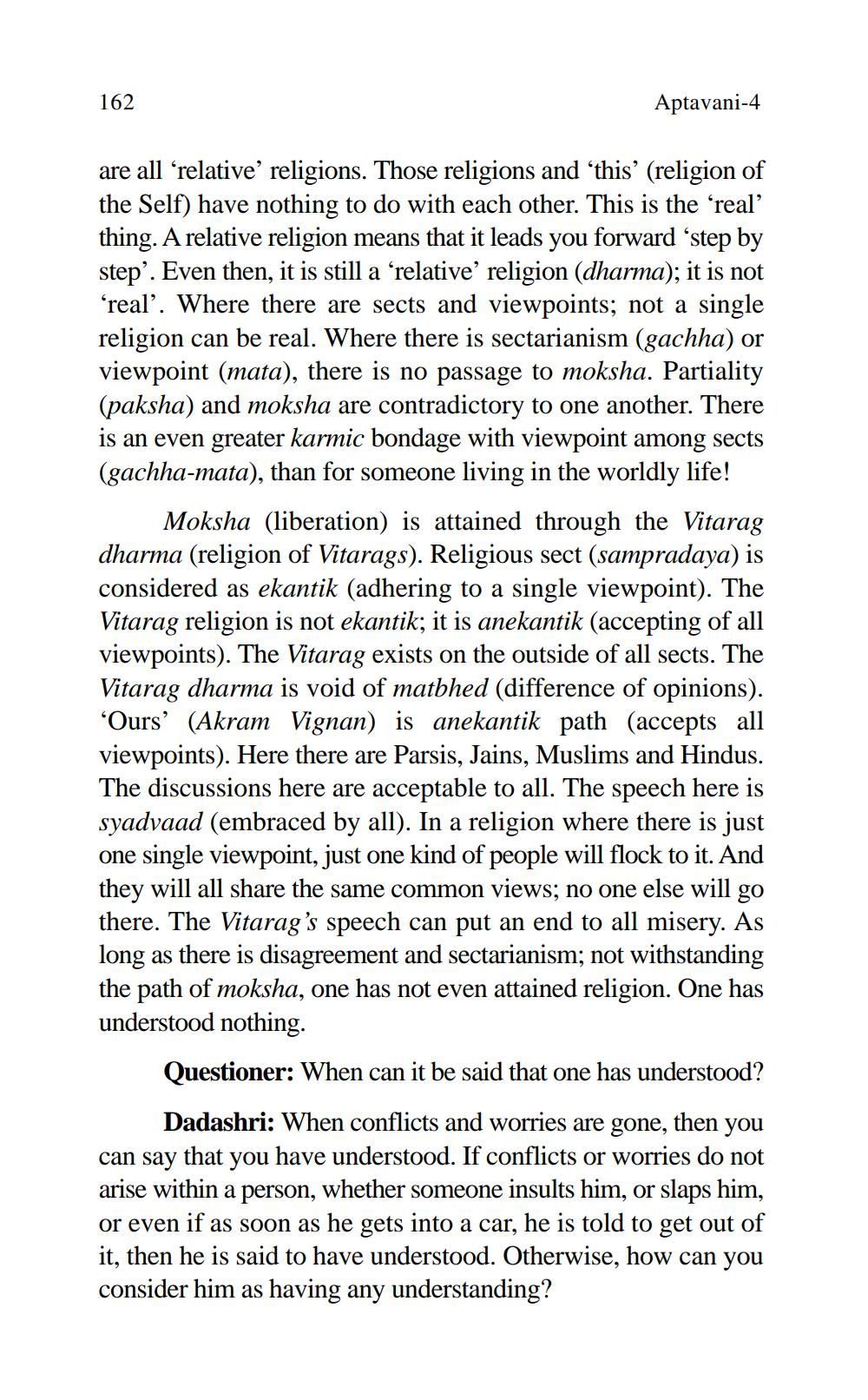________________
162
Aptavani-4
are all ‘relative' religions. Those religions and this’ (religion of the Self) have nothing to do with each other. This is the 'real' thing. A relative religion means that it leads you forward ‘step by step'. Even then, it is still a ‘relative religion (dharma); it is not ‘real'. Where there are sects and viewpoints; not a single religion can be real. Where there is sectarianism (gachha) or viewpoint (mata), there is no passage to moksha. Partiality (paksha) and moksha are contradictory to one another. There is an even greater karmic bondage with viewpoint among sects (gachha-mata), than for someone living in the worldly life!
Moksha (liberation) is attained through the Vitarag dharma (religion of Vitarags). Religious sect (sampradaya) is considered as ekantik (adhering to a single viewpoint). The Vitarag religion is not ekantik; it is anekantik (accepting of all viewpoints). The Vitarag exists on the outside of all sects. The Vitarag dharma is void of matbhed (difference of opinions). 'Ours' (Akram Vignan) is anekantik path (accepts all viewpoints). Here there are Parsis, Jains, Muslims and Hindus. The discussions here are acceptable to all. The speech here is syadvaad (embraced by all). In a religion where there is just one single viewpoint, just one kind of people will flock to it. And they will all share the same common views; no one else will go there. The Vitarag's speech can put an end to all misery. As long as there is disagreement and sectarianism; not withstanding the path of moksha, one has not even attained religion. One has understood nothing.
Questioner: When can it be said that one has understood?
Dadashri: When conflicts and worries are gone, then you can say that you have understood. If conflicts or worries do not arise within a person, whether someone insults him, or slaps him, or even if as soon as he gets into a car, he is told to get out of it, then he is said to have understood. Otherwise, how can you consider him as having any understanding?




